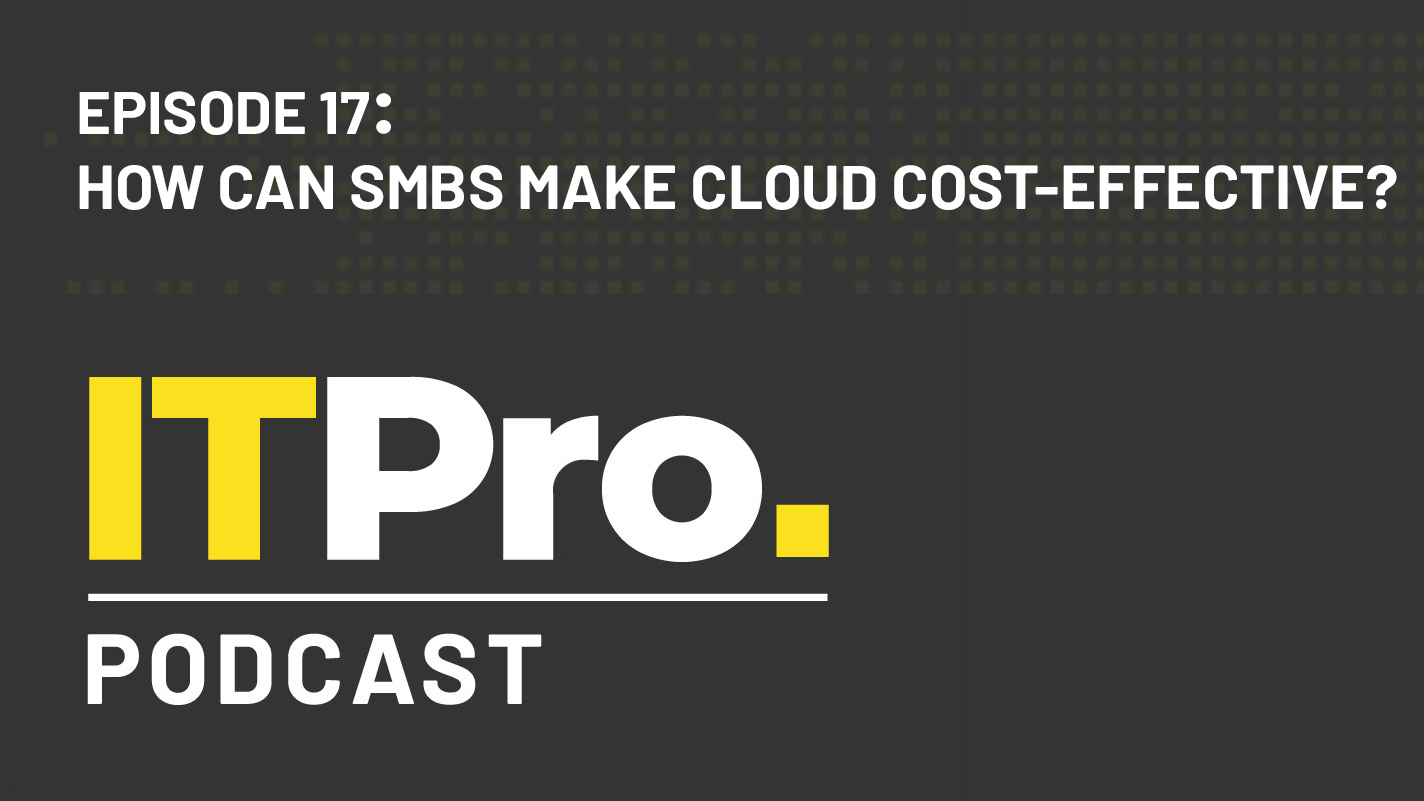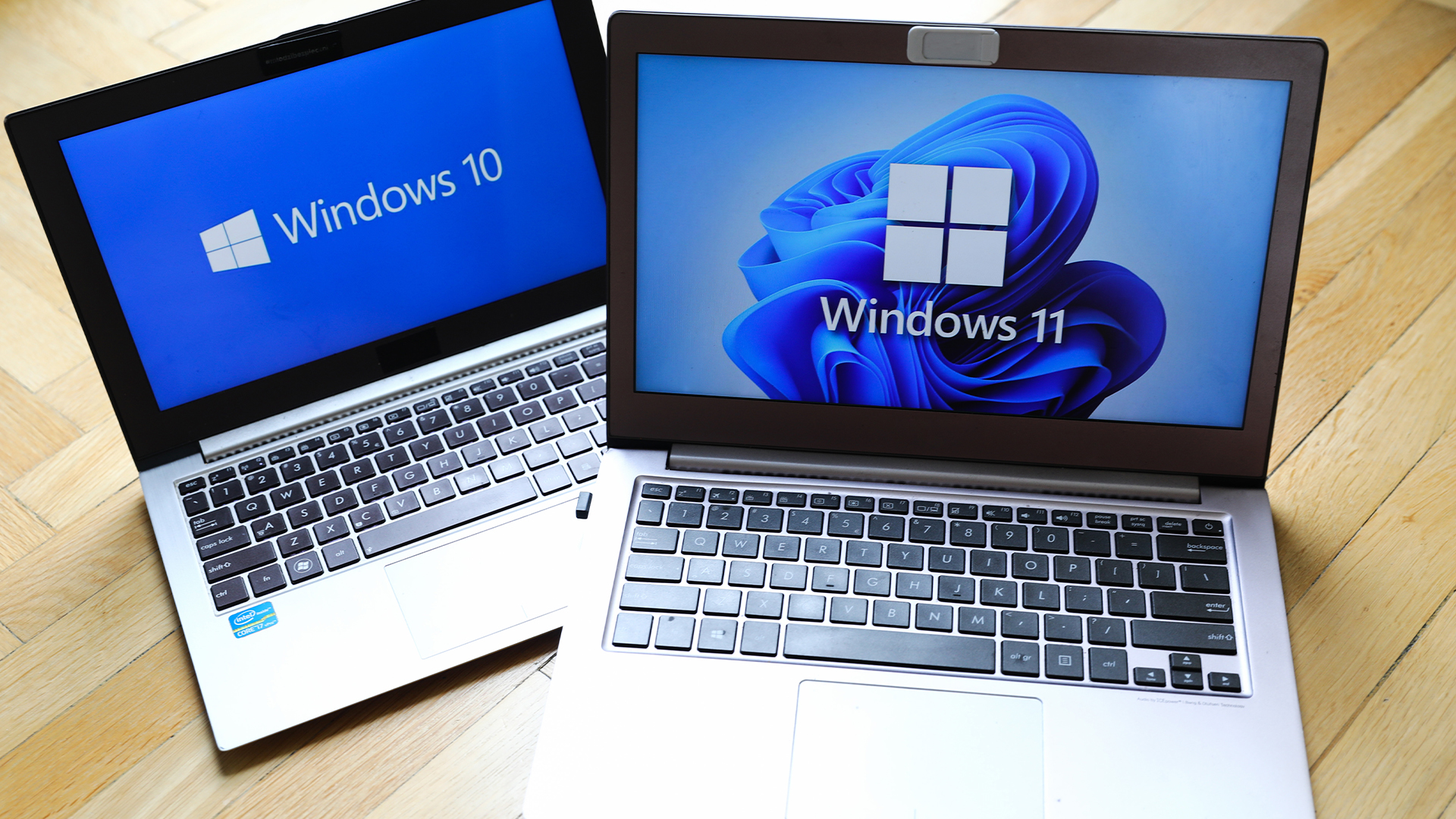Games battles are a taste of things to come
When we’re streaming our desktops, how will we pay for software? The games industry is going through these growing pains now


Sign up today and you will receive a free copy of our Future Focus 2025 report - the leading guidance on AI, cybersecurity and other IT challenges as per 700+ senior executives
You are now subscribed
Your newsletter sign-up was successful
It used to be the porn industry that led the way in technical innovation – or so I’m told. Nowadays, the games industry is a better barometer. Right now, it’s starting to go through the licensing pains that will soon be felt across the computing spectrum, and you’ll doubtless be shocked to hear that it’s us consumers who will feel that pain most acutely.
I recently wrote a feature in IT Pro's sister magazine, PC Pro, about the burgeoning games streaming services, one of which was Nvidia GeForce Now. This arguably launched with the most enticing business model – a bring-your-own games service that allows you to play titles you’ve previously purchased on Steam, Uplay or other online games stores. Nvidia provides the streaming infrastructure, for up to £5 per month, you bring the games.
At least, that was the theory – a theory that upset some of the games publishers, who hadn’t agreed to have their games on GeForce Now and demanded that they were removed.
This brings us to a philosophical dilemma: what constitutes a “PC”? Steam and other stores allow users to install their games library on any PC they own, but it seems some games publishers don’t believe that what Nvidia is offering can reasonably be classed as a PC at all.
I see both sides of the argument. GeForce Now isn’t a PC in any conventional sense. Unlike rival Shadow, which hands users their own Windows instance and lets them install what they like, GeForce Now users never see a Windows desktop. Instead, they pick from a graphical menu of preinstalled games and can play them on demand using a variety of devices, as long as they’ve already purchased the game from a supported stores or direct from the publisher.
Games publishers, used to being paid afresh every time a customer installs their game on a new platform, are narked that they aren’t getting a cut from Nvidia. And without their games, Nvidia doesn’t have a business. Nvidia, on the other hand, is doing all the heavy lifting. It’s providing the server infrastructure, the bandwidth, and clearly doing all the optimisation work itself, since publishers weren’t even aware their titles were on the service. Why should those publishers expect to be paid yet again when it’s Nvidia that’s bearing all the cost and hard graft?
If your response to that question is a Gallic shrug, a yawn of non-gamer’s ambivalence, don’t be nonchalant: these are the types of questions that will soon have to be dealt with right across the software industry.
Sign up today and you will receive a free copy of our Future Focus 2025 report - the leading guidance on AI, cybersecurity and other IT challenges as per 700+ senior executives
Streamed desktops are the future. In ten years’ time, we won’t be buying laptops or desktops with bundles of local processing power and storage, we’ll be buying dumb terminals more akin to Chromebooks. Windows, macOS and even Linux instances will be streamed, and then we’ll have the interesting conundrum of how apps are licensed on such platforms.
At the moment, for example, if you buy a Microsoft Office subscription or Adobe Creative Cloud, you get to install the client software on as many systems as the licence permits – not very many in Adobe’s case.
However, what happens when we’re effectively renting our OS from Microsoft or Apple? Will they adopt an Nvidia-like approach where the OS becomes invisible to the end user and you take your pick from a selection of apps in their stores? If that’s the case, you can expect Microsoft and Apple to demand a cut of app subs revenue and the whole licensing model is up in the air. Or will they go for a Shadow-like route, where you stream a Windows/macOS instance and things carry on much like they do today, with you paying for an OS subscription and software subs on top of that?
Last decade saw the demise of the one-off licence – the idea that you buy a piece of software and have the right to use it indefinitely, as long as you can still find a PC to support it. Aside from Serif’s Affinity packages, I can’t think of a piece of software from a major publisher that’s still clinging to that old model.
RELATED RESOURCE

The IT Pro Podcast: How can SMBs make cloud cost effective?
Top tips for smaller businesses that want to get the most out of the cloud
FREE DOWNLOAD
The difficult bit is predicting where we’re headed. The squabble between games publishers and Nvidia is just a warm up for what’s to come, with software publishers trying to retain their margins and the OS vendors determined to take a cut. We’re already seeing this with the Windows Store and Mac App Store.
One thing’s for sure: it won’t be good news for us, the customer. Just as you have to pay twice if you want to play the same game on Windows, Mac or mobile devices, I can well see that happening with the streaming platforms that will emerge. It’s going to be an ugly, expensive fight.
Barry Collins is an experienced IT journalist who specialises in Windows, Mac, broadband and more. He's a former editor of PC Pro magazine, and has contributed to many national newspapers, magazines and websites in a career that has spanned over 20 years. You may have seen Barry as a tech pundit on television and radio, including BBC Newsnight, the Chris Evans Show and ITN News at Ten.
-
 Pulsant unveils high-density data center in Milton Keynes
Pulsant unveils high-density data center in Milton KeynesNews The company is touting ultra-low latency, international connectivity, and UK sovereign compute power to tempt customers out of London
-
 Anthropic Labs chief claims 'Claude is now writing Claude'
Anthropic Labs chief claims 'Claude is now writing Claude'News Internal teams at Anthropic are supercharging production and shoring up code security with Claude, claims executive
-
 Windows 10 extended support costs could top $7 billion
Windows 10 extended support costs could top $7 billionNews Enterprises sticking with Windows 10 after the October deadline face huge costs
-
 Tiny11 review: Windows 11 with only 2GB of RAM
Tiny11 review: Windows 11 with only 2GB of RAMReview A version of Windows 11 for older machines that don't meet the full requirements
-
 Red Hat Enterprise Linux becomes foundational operating system for Cohesity Data Cloud
Red Hat Enterprise Linux becomes foundational operating system for Cohesity Data CloudNews New strategic partnership between Red Hat and Cohesity aims to drive innovation in the data security and management space
-
 Ubuntu shifts to four-week update cycle
Ubuntu shifts to four-week update cycleNews Critical fixes will also come every two weeks, mitigating the issues involved with releasing prompt patches on the old three-week cadence
-
 AlmaLinux follows Oracle in ditching RHEL compatibility
AlmaLinux follows Oracle in ditching RHEL compatibilityNews Application binary compatibility is now the aim with 1:1 now dropped
-
 How big is the Windows 10 cliff-edge?
How big is the Windows 10 cliff-edge?ITPro Network With some comparing the upcoming Windows 10 end of life to Windows XP, we ask members of the ITPro Network for their insight
-
 Everything you need to know about the latest Windows 11 updates - from bug fixes to brand-new features
Everything you need to know about the latest Windows 11 updates - from bug fixes to brand-new featuresNews Two new cumulative updates are on the way and will be installed automatically on Windows 10 and Windows 11 machines
-
 How to download a Windows 11 ISO file and perform a clean install
How to download a Windows 11 ISO file and perform a clean installTutorial Use a Windows 11 ISO to install the operating system afresh
